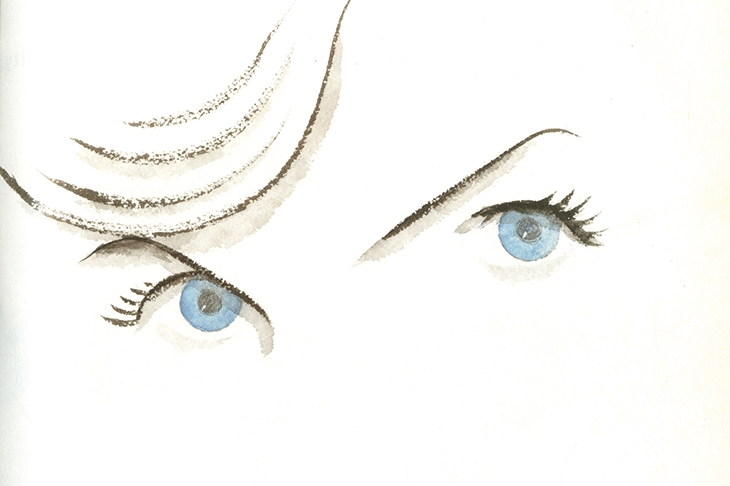Oscar Wilde’s Algernon observed: ‘All women become like their mothers. That is their tragedy. No man does, and that is his.’
No man? Not quite. Prince Harry is in so many ways turning into a version of his mother. The first sentence of the joint new year statement from the Duke and Duchess of Sussex on their Archewell Foundation website declares: ‘I am my mother’s son.’ For those of us who were around when Diana was on the scene, there’s a pang of recognition here. Prince Harry is indeed his mother’s son. He’s what might have happened to Diana if this essentially English girl had been transported to California, had learned to think and speak woke, and had the redemptive down-to-earth aspects of her character removed.
Harry is what might have happened to Diana if she’d been transported to California and learned to speak woke
Harry is what happens when royalty is crossed with celebrity and ends up as a new kind of privilege, without duties but with lots of attitude. Did you make it through the Archewell Audio Holiday Special? It was beyond awful — emotional effusion as a substitute for politics — but it was interesting in that it showed how royalty, unanchored, can be captured, lobotomised, capitalised and monetised. It could, you think, have been Diana’s fate.
Consider too those alternative awards that Harry and Meghan launched last month as a kind of rival honours list to the Queen’s. The checklist of progressive causes, from environmental stewardship to mental health, shows what might have been if Diana had lived to institutionalise her own value system.
This year Diana would have turned 60. Undoubtedly she’d still be beautiful, undoubtedly we’d still be obsessed by her, undoubtedly she’d still be the most fabulously glamorous and devoted grandmother. She was frozen in time when she died at 36 (Harry’s age now), but her life already had some of the dangerous elements that are manifest in Harry’s fate.
Have a look at that riveting Netflix documentary, Diana: In Her Own Words — prefaced by the useful observation that it represents Diana at difficult points in her life and gives just one side of the story. What it shows is that her decision to leave the royal family was based on a sense that she could do her thing — relating to people and helping them — just as well outside the family as within it. But what was never really thought through was how to manage to play royal without being anchored in the royal family. She, like Harry, could not have become the phenomenon she was without that status. She wanted to keep that mystical element, the royal touch, without the constraints of royal life, without a relationship with the Queen. Well, that’s now her son’s — or his wife’s — project.
Harry shares an awful lot with his mother: divorced parents and family trauma; emotional neediness (call it an excess of sensibility); no great academic abilities but an instinctive ability to relate to people. Diana was good at talking human to everyone she met; Harry’s cheerful mateyness derives from his time in the army. They also have in common a weakness for the company of celebrities (though in the case of Prince Harry, that’s probably his wife’s predilection), and it’s interesting that the only useful contribution to the Archewell broadcast was from Sir Elton John, his mother’s on-off intimate, talking about being an alcoholic during lockdown. Diana and Harry both collaborated in ill-advised biographies from which they tried to distance themselves. But as a friend who knew Diana well observed, what really unites mother and son is their impulsiveness, the tendency to act first and think later. Diana acted impulsively in divorcing herself not just from Prince Charles but from the royal family; a year ago, Prince Harry did the same.
Of course, the similarities can be overplayed. Diana was, for all her rubbish academic qualifications (attributable to her flaky education), an intelligent woman with genuine cultural interests — ballet, for instance. She also was fabulously manipulative; once she got the hang of her relationship with the press, she displayed a native cunning which was really impressive. She was astonishingly emotionally intuitive, far more so than her son. She understood the relationship between Camilla and her husband almost from the start, and it seems to have contributed powerfully to her destructive self-harming ways. The one legacy of that which remains is the way Prince Harry omitted any reference to Prince Charles from his Archewell new year statement.
The sad reality is Harry and Diana shared attributes that could have been enormously valuable to the royal family. Diana acknowledged as much in a lunch she had in New York with Tina Brown for Vanity Fair not long before she died. ‘What a pair we could have been,’ she said of herself and her former husband. He could have done his thing; she could have done hers. Harry too could have been an asset rather than an embarrassment, had he not cut himself adrift from the family from which he derives his identity. Both are, then and now, a loss to British public life.







Comments